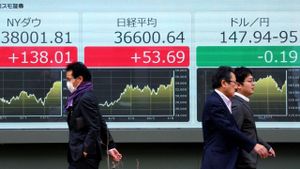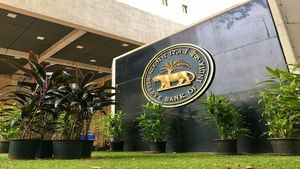The dialogue surrounding the potential business alliance between Honda and Nissan has taken a significant turn, following indications from Nissan’s president, Makoto Uchida, to Honda's CEO, Toshihiro Mibe, about the termination of their merger discussions. This decision marks a notable shift after both companies had initially planned to reach conclusions by the end of January 2024, before recently extending the deadline to mid-February.
On February 6, 2024, Uchida met with Mibe to express Nissan's intentions directly, as discussions began to serious decline. According to reports from Kyodo News and the Nikkei, Nissan's board members had voiced considerable concerns about downsizing to subsidiary status under Honda, leading Uchida to communicate the growing opposition during this pivotal meeting.
Despite their initial plans to establish a holding company to merge operations, the reality of the merger discussions has begun highlighting the substantial differences between the companies. Uchida noted the dissenting voices within Nissan’s board as they deliberated the proposed subsidiary model, which was proposed by Honda during the negotiations.
Sources close to the negotiation process indicated strong resistance to the notion of becoming Honda's subsidiary, leading both company executives to conclude their alliance discussions may not proceed as envisioned. The decision to withdraw from integration talks reportedly emerged from both Nissan and Honda reflecting on their alternative strategic directions, each considering the balance of power, market positioning, and corporate identity.
Following this substantial shift, both companies are expected to convene individual board meetings. Here, they will assess the necessary steps to withdraw the memorandum of agreement detailing their merger discussions, which had been anticipated to lead to integrated operations and expansion encounters within the competitive automotive field.
Questions loom about the future strategy for both companies. Industry analysts are closely monitoring how Nissan will position itself following this development and whether Honda’s inclination to acquire Nissan might pivot to other strategic partnerships or independent growth initiatives.
Meanwhile, Honda’s corporate stance has indicated its position: it will not proceed with any merger without agreement on the subsidiary proposal from Nissan—a position it accentuated during negotiations. The considerable disparity of opinions has raised concerns within both organizations, prompting them to rethink the feasibility of their business integration plans.
Both automakers are considering their respective paths forward, with Nissan also facing pressure from other potential collaborators. Notably, Taiwan’s Hon Hai Precision Industry, commonly known as Foxconn, has revisited its previous interest in acquiring Nissan following the collapse of the partnership talks. This inclination could reshape the competitive dynamics as Foxconn looks to expand its footprint within the automotive sector, especially focusing on electric vehicles.
The wider automotive industry is observing these developments closely. The talks’ abrupt termination raises questions about how it will affect future strategic partnerships not only between Honda and Nissan but also within the larger framework of the automotive market as both firms weigh their operational goals. The push for innovation continues as both companies must adapt to shifting market demands, keeping pace with advances such as electric vehicle technology.
Looking beyond immediate challenges, the automotive world is rife with speculation on how alliances—or the lack thereof—will impact both companies’ market positions as they strive to remain viable players amid fierce industry competition. The potential for new strategies remains, but past unification efforts suggest many hurdles lie ahead as Nissan and Honda reevaluate their paths separately.
Industry insiders and stakeholders are anxious for concrete decisions on both the interruption of this alliance and for potential alternative partnerships, which could provide new avenues for both automakers’ growth. How they navigate this uncertain territory could determine their resilience and adaptability as players within the ever-evolving automotive sector.
Conversations within both corporations are now focused on identifying next steps and the most promising paths forward. Should Honda and Nissan fail to reconcile their differences, both are expected to carve their unique routes potentially leading to transformative opportunities.



